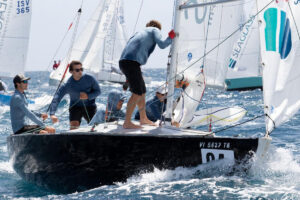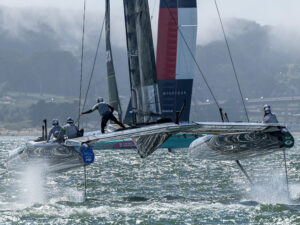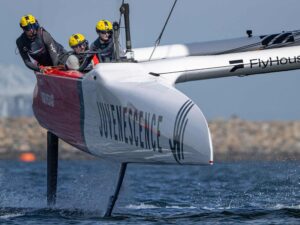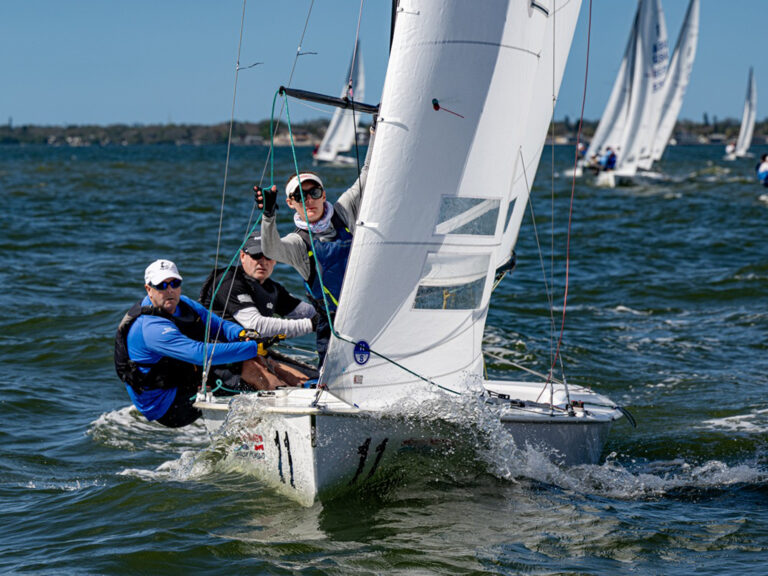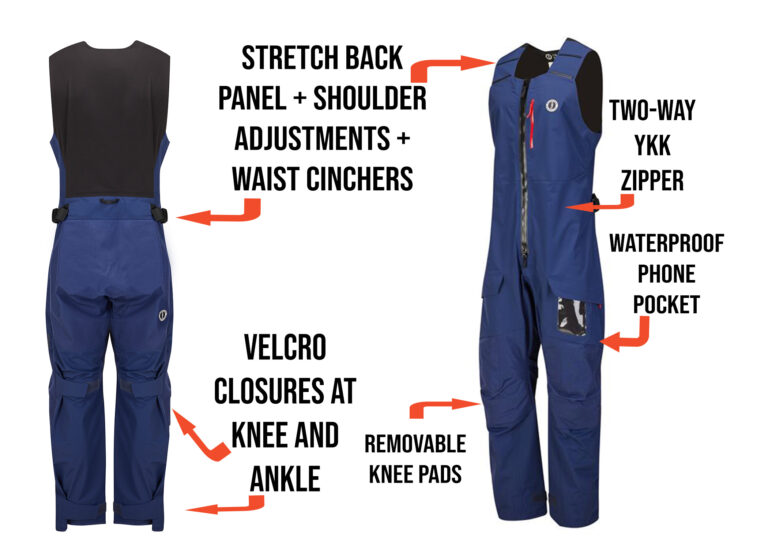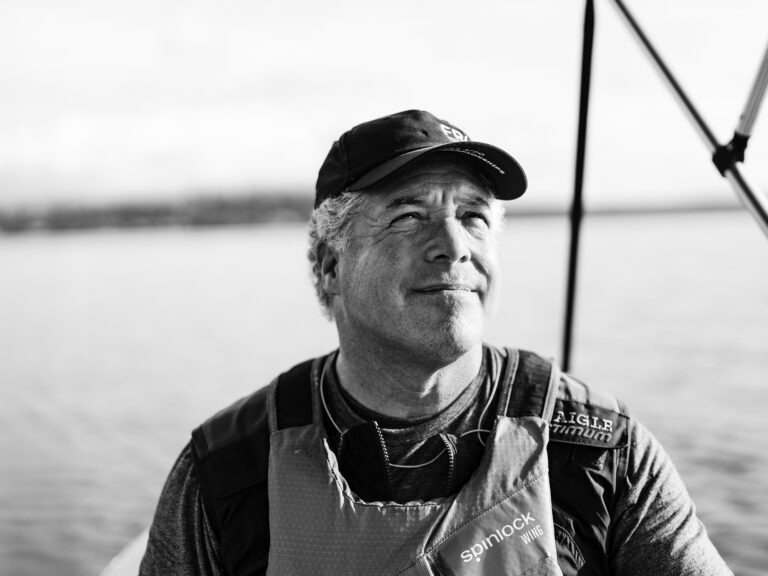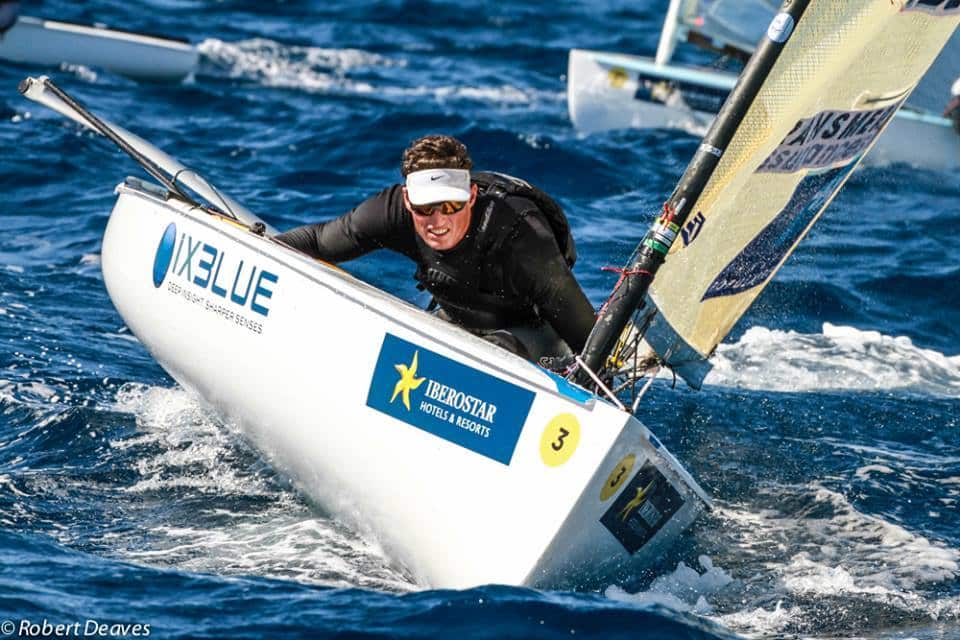
Finn sailors are as powerful as the boats they sail. The athletes are tall, big and strong, and as fast and agile as the Finn itself. Sailing the Finn becomes a true athletic challenge when the breeze kicks up above ten knots. At this threshold, Finn sailors are allowed to pump the mainsail down wind. “It’s like dancing in the boat,” says Jonathan Lobert, the French-flagged Olympic-bound Finn sailor. “Pumping is a lot of hard work, and makes sailing look like a true sport to outsiders.”
Lobert won a bronze medal in the London Olympics in 2012, and when he returned to land following an intense medal race, the French media were infatuated with his performance. “I always am asked why you need to be so strong to be a sailor,” says Lobert. “When they watched the videos from London, they were impressed that we could race in those physical conditions for an hour long race, twice a day for six days, plus the medal race.”
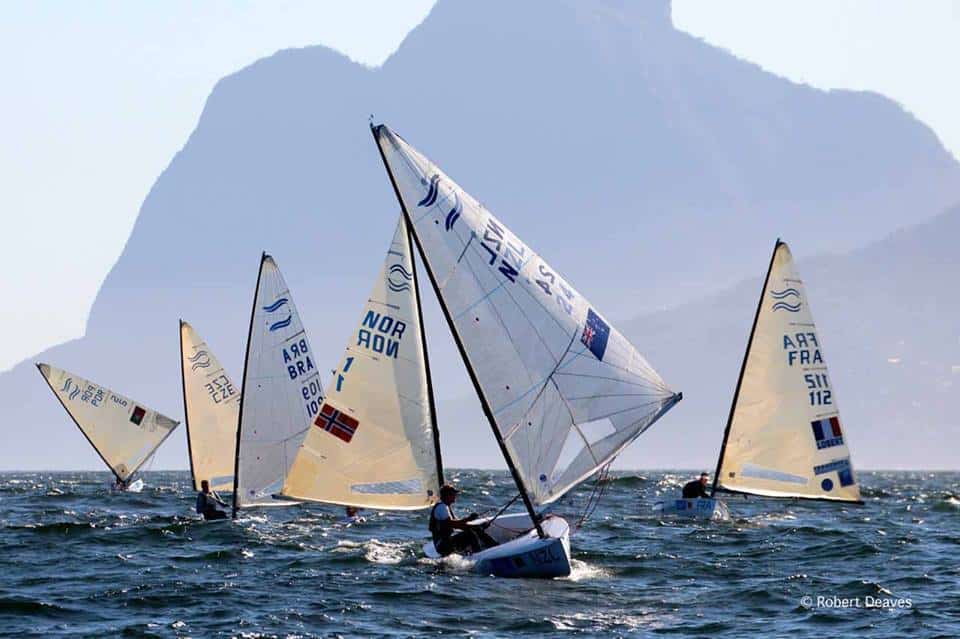
For Lobert, sailing the Finn is the truest athletic form of sailing. “In particular, it’s truly a sport because you have to be both smart and strong,” he says. “You always have someone who can take the lead away from you, who can read the wind or current better than you. To win, you have to mix many skills together.”
In order to pump the Finn efficiently, Lobert breaks it down step by step. “First, you pull the mainsheet in and luff the sail slightly, shifting your weight to windward to give the boat some heel,” he says. “As soon as you’re heeling, trim the mainsheet and shift your weight to the other side of the boat to make it flat. This moment is crucial and you have to make the boat flat as fast as possible. The motion of the sail and the shifting of the weight in the boat accelerates you downwind.”
The key, as Lobert says, is speed and balance. “You have to do many things at once,” he says. “It’s like surfing on a surfboard, you have to keep the correct pressure on your feet to balance the weight. At the same time, you have to keep the correct amount of pressure on the mainsheet with your hands to keep the sail activated.”
Lobert and his training partners put in long hours in the gym to increase both strength and endurance. They use rowing machines and cycling for cardio to be able to handle the length of the races, and weight training for the strength portion. “When you’re pumping, you’re moving over 200 kilos so you’re pulling pretty hard,” he says. “The key is to be efficient. If you pull and push like a maniac, you’re exhausting yourself and in the end you’ll be slow. It’s a balance.”
Lobert maintains that pumping, though it’s often questioned by non-Finn sailors and the old guard as a Rule 42 violation, was a great change for the class and makes sailing look like a true sport to spectators. “Now, when we sail for the medal race, it’s the most impressive looking and most challenging racing you’ll see in the event,” he says.
Ben Ainslie, the 2012 gold medalist in the Finn Class, reviews pumping in a video from Volvo Sailing.

